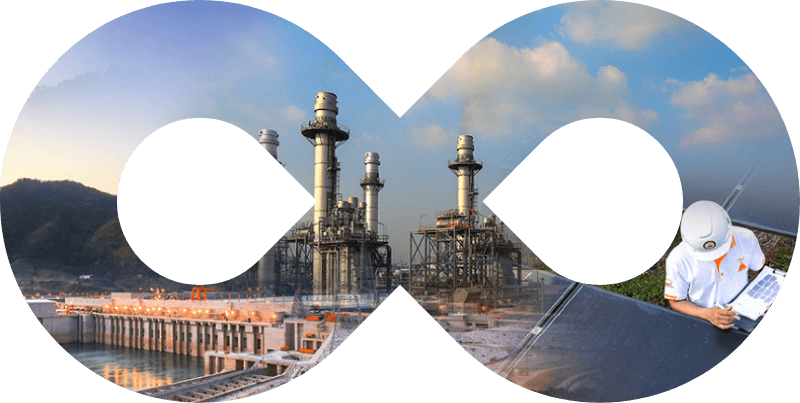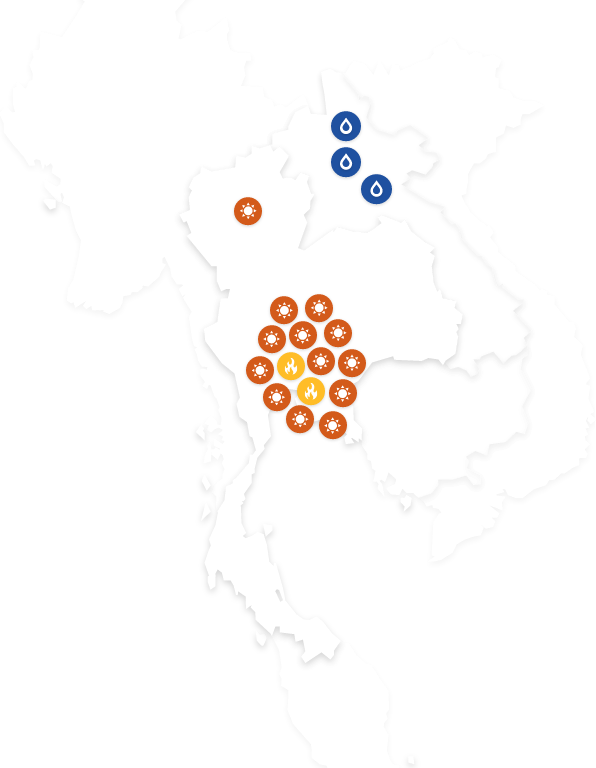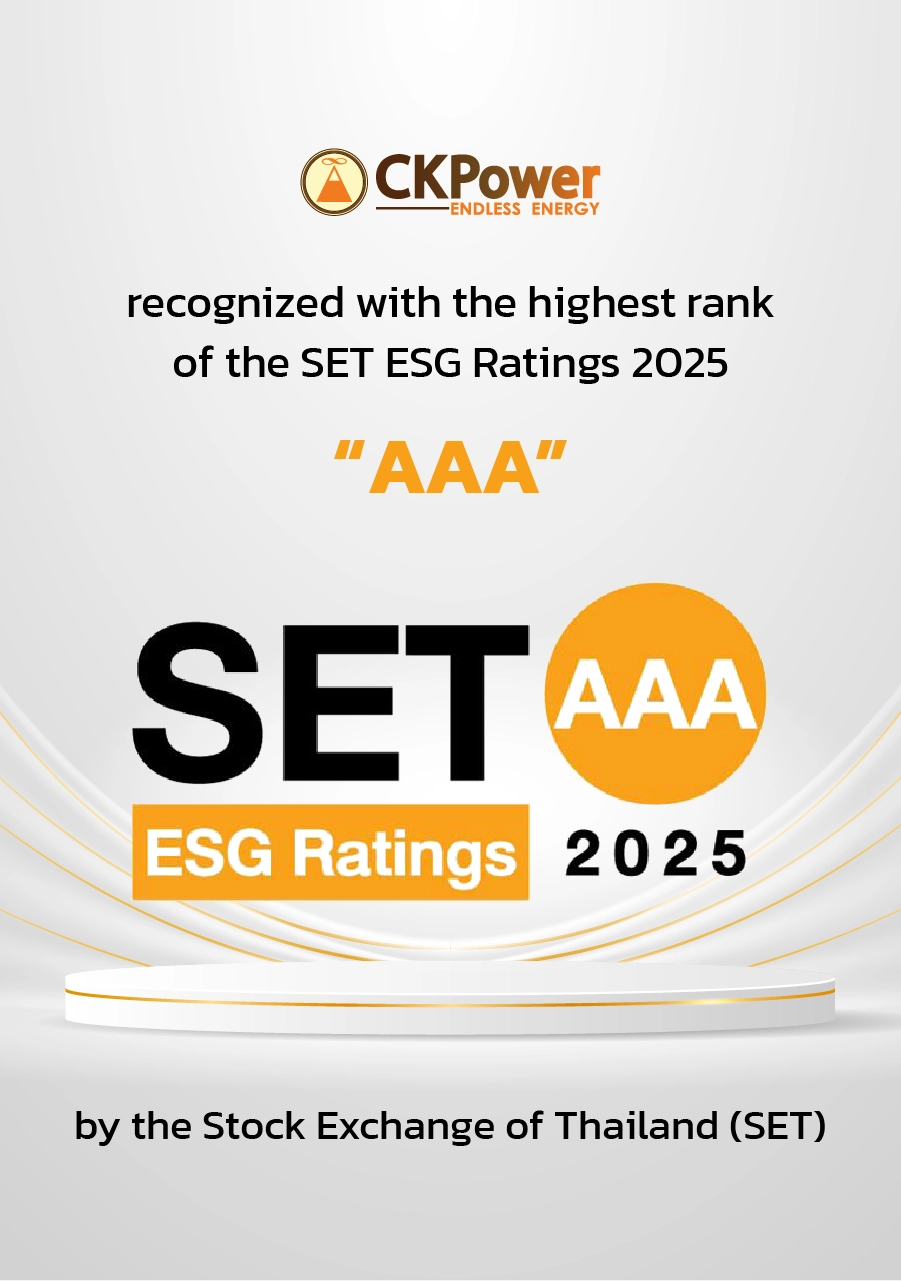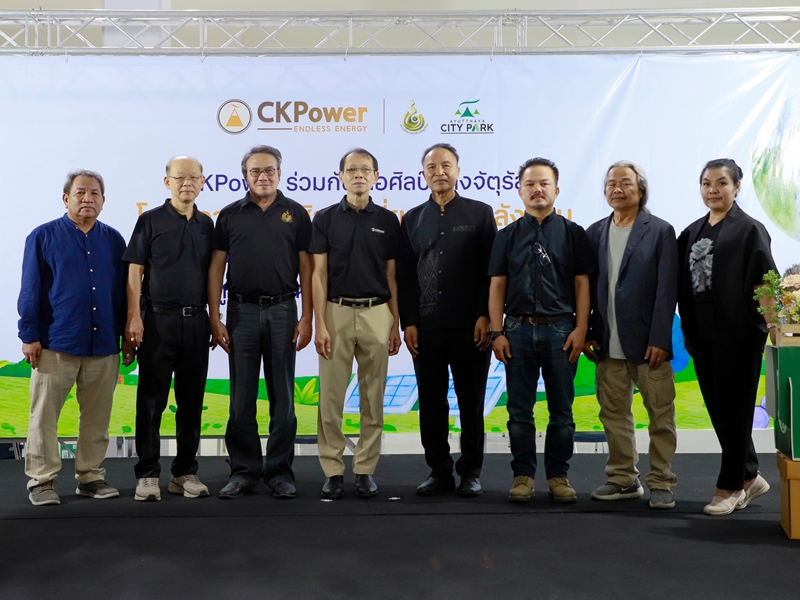ABOUT CKPOWER
CKPower Public Company Limited (the “Company” or “CKP”) was founded by CH. Karnchang Public Company Limited Group (“CH. Karnchang Group”) , registered its incorporation on June 8, 2011

To be one of the region’s largest producers of electricity from renewables with one of the lowest carbon footprints
OUR BUSINESS
HYDRO POWER
CKPower holds shares in the Nam Ngum 2 Hydroelectric Power Plant, representing 46 percent of the registered and paid-up capital in Nam Ngum 2 Power Company Limited (“NN2PC”) and also hold shares in Xayaburi Power Company Limited (“XPCL”), representing 37.5 percent of XPCL’s registered and paid-up capital.
COGENERATION
CKPower holds shares in Bangpa-in Cogeneration Limited (“BIC”) representing 65 percent of its registered and paid-up capital. BIC is a producer and distributor of electricity and steam from the natural gas-fired cogeneration power which consists of two projects: BIC1 and BIC2.
SOLAR POWER
CKPower holds shares in Bangkhenchai Company Limited (“BKC”) representing 100 percent of its registered and paid-up capital. Furthermore, BKC has invested in the Monocrystalline solar power plants, consisting of five solar rooftop power plant and one solar farm power plant.
OUR FOOTPRINT
The Company currently invests in companies operating the business of production and distribution of electricity in three types of power plants, which are, Hydroelectric Power Plant, Cogeneration Power Plant, and Solar Power Plant, divided into investment in a total of seven subsidiaries and associated companies
HYDRO POWER
PROJECTS IN LAO PDR
SOLAR POWER
PROJECTS IN THAILAND
COGENERATION
PROJECTS IN THAILAND

INVESTOR CORNER
Welcome to CKP Investor Relations. Here you will find all information about the Company’s key figures, share, strategy, and financial events.
CORPORATE GOVERNANCE
With realizing the significance of operations in accordance with the Principles of Good Corporate Governance, the Board of Directors then sets out the Corporate Governance Policy in writing to ensure the corporate practical guidelines with clarity, transparency and auditability
WHAT’S UPDATE
Follow the updates of corporate information and upcoming events
WE’RE LOOKING FOR TALENTED PERSONNEL
If you’re talented, hardworking, and love to be part of a team, then you’ll fit right in.

